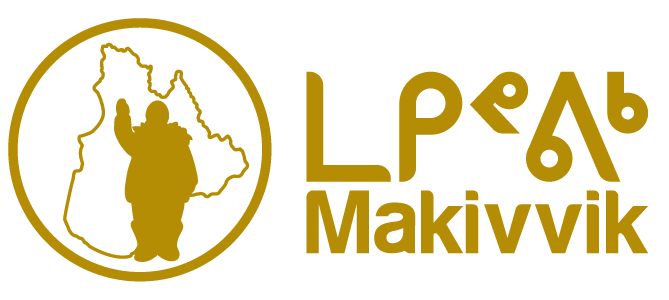Just outside a bustling departure gate at Montreal’s Pierre Elliot Trudeau Airport, people disembark from an Ullivik van and gather their luggage. Makivvik’s Director of Urban Inuit, Joey Partridge and two frontline workers are standing nearby, observing, and asking people if they need a hand. It’s about 8:30 am, and an Air Inuit flight is scheduled to depart in a couple of hours. Recognizable by their bright yellow Makivvik armbands, this group of individuals is committed to addressing the complex issue of homelessness among Montreal’s Inuit population.
At the heart of Joey’s work lies “Reaching Home,” Canada’s National Homelessness Strategy, a vital community-based program designed to prevent and alleviate homelessness across the country. With a focus on providing funding to diverse communities, including urban, Indigenous, rural, and remote areas, Reaching Home seeks to support vulnerable Canadians in maintaining safe, stable, and affordable housing.
Vanessa Doig, Assistant Director of Makivvik’s President’s Department, sheds light on the crucial role played by Joey and his team. By leveraging various provincial and federal funding sources, they bridge gaps in services for those at risk of homelessness, particularly during transitional periods, such as when individuals arrive in Montreal without lodging before or after medical treatments, or upon being released from incarceration.
Makivvik’s involvement underscores a commitment to decision-making autonomy, ensuring that resources are allocated effectively to meet the unique needs of Inuit.
“None of this is being done with Makivvik’s money, but it’s being done with Makivvik’s decisions. We want the money, and we want the flexibility to determine for ourselves where our priorities lie,” Vanessa said. The frontline staff are funded by CIUSS Centre Sud-Quest and the City of Montreal.

Frontline workers like Moses Aronsen and Kautjak Qaunnaaluk, along with their supervisor Joey Partridge, are the backbone of this operation. Positioned near the airport gates, they provide invaluable support to individuals facing challenges like intoxication or missing identification documents, ensuring they can board their flights or find accommodations. As the hours pass, they travel a set path which includes a nearby mall and Ullivik residence, looking for any Inuit who may need assistance.

During the week, the day shift team operates from 8 am to 4 pm, and the evening shift from 3-11pm. The evening shifts are stationed at the airport to support individuals arriving from the north and make sure they understand the resources available. If they are not knowledgeable about the city, the team is also there to advise them. On the weekend the team works 10:30 am-6:30pm mainly assisting people on the morning flights and, like the evening shift, welcoming the arrivals and offering assistance. The teams’ rapport with community members and airport staff fosters trust and cooperation, essential in navigating complex situations, including intoxication, or something as simple to rectify as a language barrier. Makivvik is advertising for six more frontline staff to focus on the downtown area, and Joey says they are hoping to have them working by mid-summer.
Joey’s leadership is pivotal in facilitating this support. He has worked alone for years, travelling the route frequented by transitory Inuit in the Dorval area, and answering calls for assistance from various organizations who are dealing with vulnerable Inuit. As Director of Makivvik’s Urban Inuit Division, he works with an Advisory Board made up of individuals from other health and social service organizations, as well as with other staff, including Carlo DeAngelis, a retired SPVM police officer who worked as the Indigenous Liaison Officer in the community and is now an Advisor to the Director.
With his advising supports, meticulous planning, and hands-on training, Joey has equipped his team to handle diverse scenarios with confidence and empathy. Together, they ensure no one slips through the cracks, whether at the airport gates or on the streets of Montreal – to the extent that it fits their scope of abilities.
“We want to make sure that Nunavimmiut also understand that we don’t want anyone to be afraid of what we’re trying to do here and why we’re here. We want to make sure they understand that they have full support, that they have full help, and that they have full guidance from us – if they need it,” he said. “We make sure that we are always there for them until we know that they are in a safe situation,” Joey said.
In the face of a drastically rising Inuit homelessness rate in Montreal, Joey says he is driven not by monetary gain but by a genuine desire to uplift his community. Through he and his team’s tireless efforts, they are not just addressing a crisis but nurturing a culture of support and resilience, one person at a time.
As Moses aptly puts it, “It’s a very fulfilling job. Some days can be challenging, but it’s nothing that we can’t handle.”
Kautjak echoed Moses’ words. “After a day of work for me something really positive is knowing that I helped someone in need and that I’m going home knowing that person is safe or knowing that someone on the streets has flown home.”





